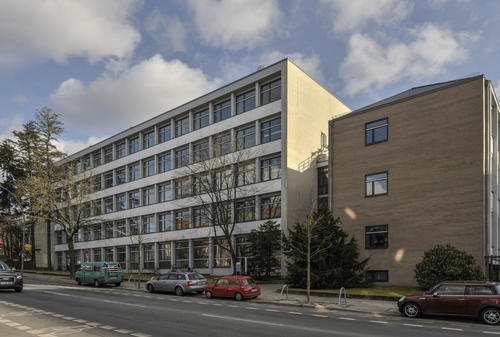Anticancer Drugs Formed through Molecular Evolution
Scientists at Freie Universität Explore Alternative Routes to Drugs against Tumor Cells / Findings published in online journal “Nature Communications”
Mar 11, 2019
Scientists at Freie Universität Berlin have discovered an alternative route to drugs against tumor cells.
Image Credit: Bernd Wannenmacher
Scientists at Freie Universität Berlin have discovered an alternative route to drugs against tumor cells. The group led by Prof. Dr. Jörg Rademann from the Institute of Pharmacy examined the protein STAT5, which is responsible for the aggressive growth of human leukemia cells. They were able to show that the protein is able to self-assemble its own inhibitors from three simple chemical components once the appropriate building blocks have been added to the protein solution. The findings were published in the current issue of the online journal Nature Communications.
The researchers found that the protein functions like a catalyst that activates the three building blocks and thus triggers their joint reaction with the active ingredient. Precisely matching the building blocks to the protein creates a precisely fitting, biologically active molecule in a molecular evolutionary process. The drug molecules are formed under physiological conditions. They inhibited the growth of human leukemia cells in cell culture and in an animal model.
The researchers hope their findings can ultimately lead to innovative drugs for other protein and protein-catalyzed reactions. They are planning further investigations to discover how broadly this method can be applied in drug development and whether the new molecules can be used in clinical practice.
This text was originally published on January 08, 2019, as a press release.
Further Information
Literature
- E. L. Wong, E. Nawrotzky, C. Arkona, B. G. Kim, S. Beligny, X. Wang, S. Wagner, M. Lisurek, D. Carstanjen, J. Rademann. The transcription factor STAT5 catalyzes Mannich ligation reactions yielding inhibitors of leukemic cell proliferation. Nature Communications 2019, 10.
- DOI: 10.1038/s41467-018-07923-2

